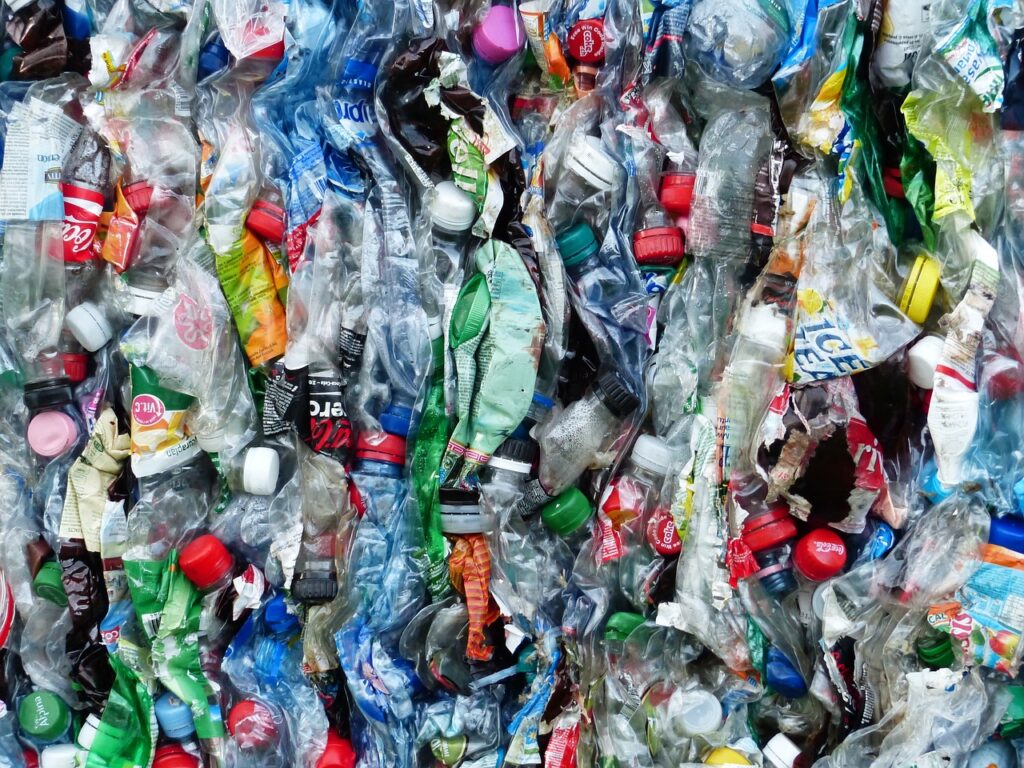Reducing Plastic Waste: Protecting God’s Creation
Reducing plastic waste protects animals, humans, and all life in the oceans, lakes, and rivers. As children of God, we are called to preserve and protect Creation for future generations. Minimizing waste and reusing materials also keeps our air clean and helps manage our landfills.
The Problem: Plastic Waste in the Great Lakes
• 86% of litter in the Great Lakes is composed of plastic, according to a report from the Alliance for the Great Lakes.
• Previous studies estimated 22 million pounds of plastic debris entered the lakes annually, making up 80% of shoreline litter.
• Large plastic items, such as bags, straws, and takeout containers, break down into smaller particles called microplastics, which are found in drinking water, human blood, organs, and even breast milk.
Plastic Waste Facts
1. Plastic is made from petroleum oil, which isn’t sustainable.
2. One million plastic bottles are purchased every minute globally.
3. It takes at least 460 years for a plastic bottle to decompose.
4. Plastic production continues to increase, filling our landfills faster.
5. By 2050, there will be more plastic in the ocean than fish by weight.
If everyone switched to reusable bottles, we could save enough energy to power New York City for a month.
The Impact of Microplastics
Microplastics, tiny plastic particles ranging from 5 millimeters to 1 nanometer, and nanoplastics (particles smaller than one micrometer) have been found in ecosystems worldwide, including:
• The Antarctic tundra
• Tropical coral reefs
According to the United Nations Environment Programme, microplastics have been found in human livers, kidneys, and placentas. The International Union for Conservation of Nature reports that plastic products can leach carcinogenic chemicals into tap water, potentially causing developmental, reproductive, neurological, and immune disorders.
What You Can Do to Reduce Plastic Use
Though it may involve some inconvenience, we are called to restore God’s creation by:
• Avoiding single-use plastics (bags, utensils, etc.)
• Using alternatives to plastic wrap, such as silicone stretch lids or food huggers
• Bringing reusable shopping bags to the store
• Buying produce not packaged in plastic
• Using reusable water bottles and refillable coffee pods
• Carrying reusable containers for restaurant leftovers
• Challenging ourselves to notice plastic in our daily lives
Improving Recycling Practices
Recycling is crucial, but often confusing. The EPA provides these guidelines to improve recycling rates:
1. Check your local recycling program for rules.
2. Keep recyclables clean and dry.
3. Keep food and liquids out of recycling bins.
4. Place recycling bins next to trash bins for convenience.
5. Compost food waste when possible.
6. Keep plastic bags and wraps out of recycling bins.
7. Flatten cardboard boxes before recycling.
8. Pizza boxes are recyclable; pizza is not!
9. Spread the word about the benefits of proper recycling.
10. When in doubt, throw it out.
While helpful, recycling alone won’t solve the problem. Governments, institutions, and corporations must work together to find alternatives to plastics that can be more easily repurposed.
